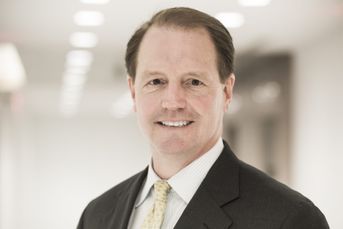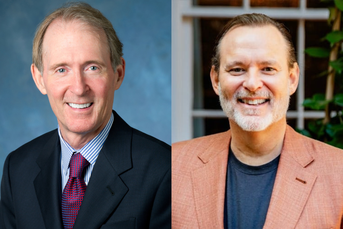Stock slump has rich rethinking retirement, Natixis survey shows

Almost half of high-net-worth individuals are so worried about retirement security that they avoid thinking about it all together.
This year’s stumbling stock market has even rich people rethinking their retirement plans.
A Natixis Investment Managers study of U.S. investors with $1 million in investible assets shows that even wealthier individuals are worried about their eventual ability to retire comfortably.
Almost six in ten (58%) of high-net-worth individuals say they accept the fact that they may have to work longer than expected, even though they plan on retiring at the relatively early age of 63, according to the survey. Meanwhile, more than a third (35%) of millionaires believe “it will take a miracle” to achieve a secure retirement.
The report also revealed that almost half (42%) of high-net-worth investors are so worried about retirement security that they avoid thinking about it all together.
“A decade of historically low rates impeded investors’ ability to annuitize assets, leaving many retirees with a less-than-ideal income. It’s true that the overall level is still low from a historical perspective, but rates are now rising on higher government debt. Together with persistent fears of a global recession, we’re seeing new risks emerge,” said Liana Magner, Natixis’ executive vice president and head of retirement and institutional in the U.S.
Magner added that those hoping to retire need “a new playbook, including education, planning, tools and policy to meet the retirement crisis.”
As for those historically low rates, more than half (58%) of high-net-worth respondents recognized that those many years of depressed yields will make it difficult to generate an income off their savings, even now that rates have sprung higher.
Furthermore, the overwhelming majority of respondents (65%) acknowledge that health care costs and long-term care costs like nursing care will have a big impact on financial security in retirement.
Just to prove that a million dollars is not what it used to be, 31% of respondents believe it will be difficult to make ends meet without Social Security.
“It is not surprising that a large percentage of high-net-worth individuals avoid thinking about retirement security altogether, especially during a market correction that is weakening their balance sheets and a period of heightened inflation that is diminishing their purchasing power,” said Eva Chen, senior vice president at Evoke Advisors. “These economic environments often cause emotional distress, and a natural response is to put off retirement planning in fear of not achieving the desired goals.”
Chen said such moments of market dislocation are precisely the times when having an experienced adviser can help, not just to put together a comprehensive financial game plan, but also to cope with the impulse of having a knee-jerk reaction and liquidating investments at inopportune times.
Steven Brod, CEO and CIO of alternative investment platform provider Crystal Capital Partners, said these statistics illustrate the problems investors are facing with the traditional 60/40 portfolio, which is down nearly 21% through September. In his view, investors who are approaching or currently in retirement may need to retool their portfolios by expanding their investment ecosystem to include alternative investments.
“Data has clearly demonstrated that these diversified portfolios have outperformed over the last decade,” Brod said. “Through alternative investments, however, advisors can potentially lower the overall volatility of client portfolios, and in turn, offer a higher probability that clients can meet their retirement objectives.”
‘IN the Office’ with annuity expert Tamiko Toland
Learn more about reprints and licensing for this article.








